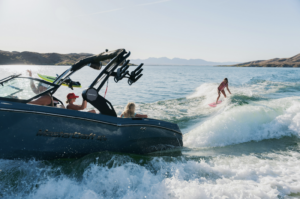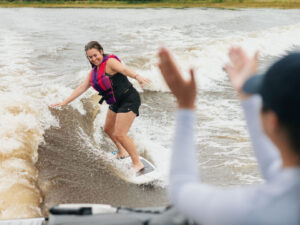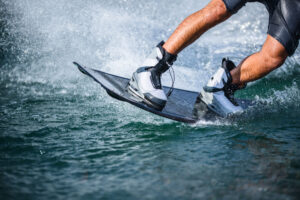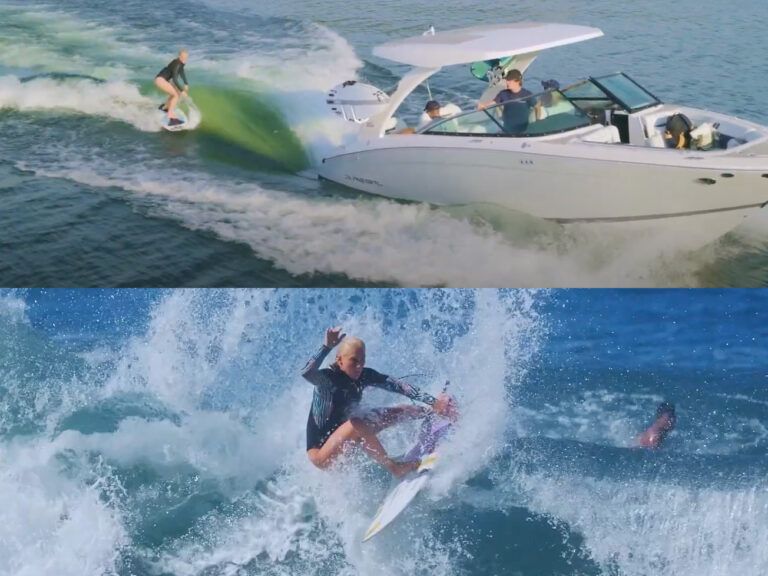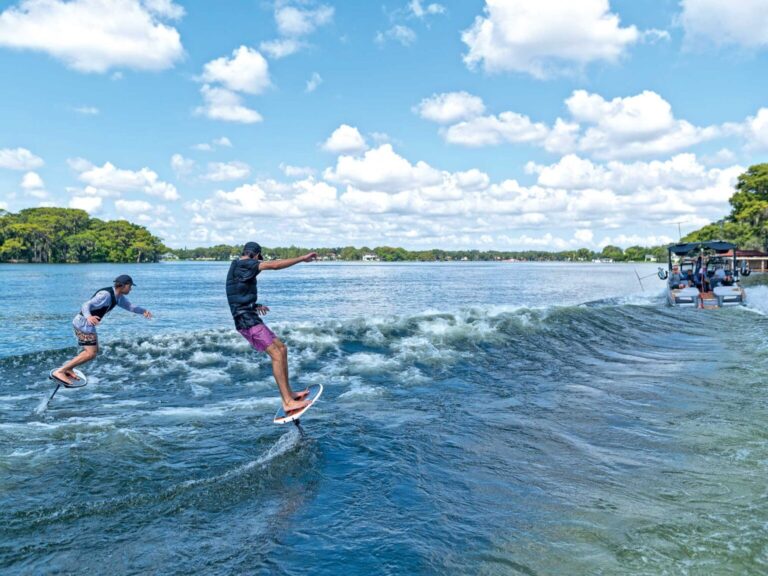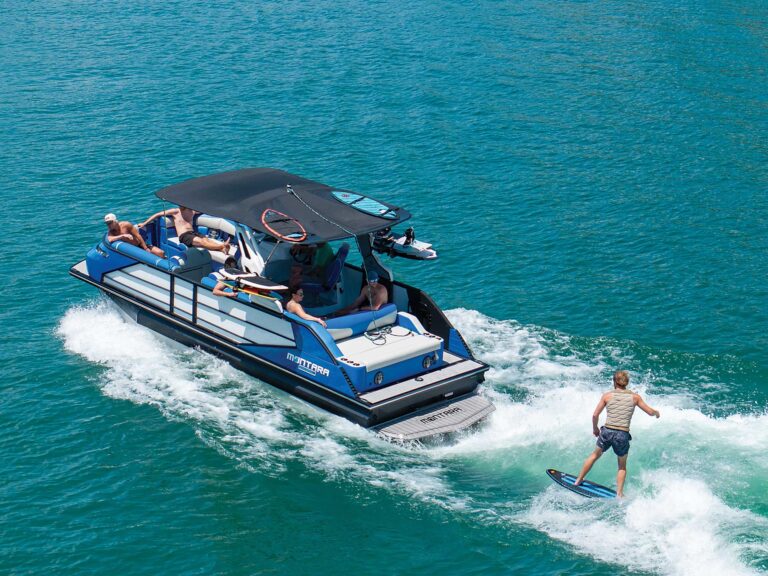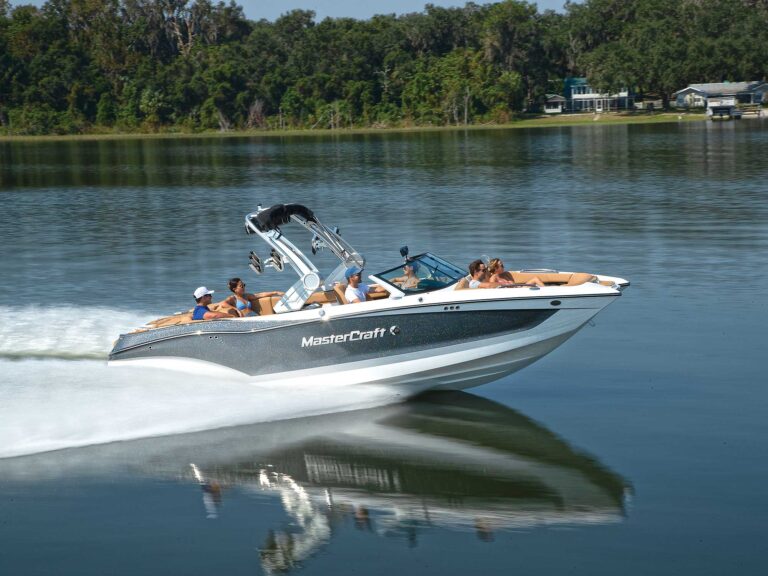We had a chance to have former pro women’s wakeboarder Andrea Gaytan give us a little insight and her best tips for riding in wakeboarding contests. She did it professionally and successfully for many years, and while summer is in full swing, we thought now is the time to share her thoughts and advice.

Have you ever found yourself screaming under the water after falling on your first trick at a contest? Ever watched the finals from the beach knowing you would have still been riding if you hadn’t messed up? Have you ever wondered why you stick everything in practice, but in contests you struggle? If any of this sounds familiar, or even if you’ve never entered a contest but want to, the following advice should help you find your happy place and be in the zone when you need to turn it on.
Before I tell you about my safe zone and secret formula, I want to tell you why I choked so many times. I competed in only a couple of big contests per year. I was hungry to prove something. I wanted to win. I knew that I could win, but I hadn’t yet. The crowd made me nervous. I tried too hard. I was too cautious. Do you see a pattern here?
When I started wakeboarding professionally, I wanted to ride on the Pro Tour, but there was one problem: A division for women didn’t exist. So I entered anyway. As terrified as I was (seriously mortified) to be competing against Darin Shapiro, Scott Byerly and Parks Bonifay, the tour gave me the opportunity to practice my number one recommendation for performance enhancement:
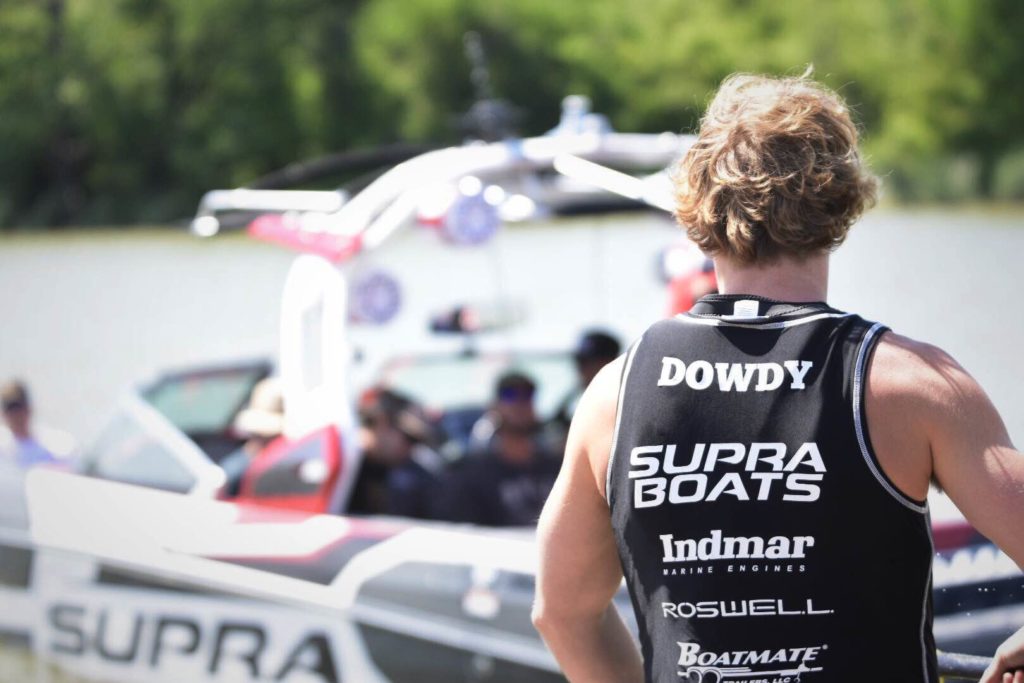
2016 PWT – Mike Dowdy
Those guys were way better than me. If we all rode our best, I didn’t stand a chance. Therefore I quickly learned to focus only on what I was doing, and that was huge! Having a nothing-to-lose attitude helped me feel more comfortable. I carried this attitude with me when the tour added the women’s division. Even though I actually did have a lot to lose, I kept the focus on myself. I would not watch my competitors ride because it would only make me nervous. I learned to block out the rest of the world and stay totally present in the here and now.
I remember sitting on the dock at the X Games with my boots strapped on, waiting for my turn. “One minute,” the dock starter told me. My legs started to tremble. My heart started to beat its way out of my chest. I closed my eyes and reminded myself to breathe, to go into my safe zone.
While I waited for the longest minute of my life to pass, I held on to the handle and visualized my passes over and over. I cannot deny that as I sat there, I liked hearing the crowd sigh more than they cheered. Groans meant that my competitor fell; cheers were pressure. However, none of that really mattered.
When I was an aspiring pro, it was funny how only after I won something did the sweet balm of recognition and sponsorships come my way. What nobody knows is how many times I failed and what it took for me to finally put it together. It wasn’t that the stars aligned. In fact, it had nothing to do with luck.
All those years before the limelight had been the most important years of my career. All those mistakes became my greatest source of knowledge. After I won and tasted success for the first time, I was in for another lesson. I needed to learn how to win again. And again? How was I to develop consistency?
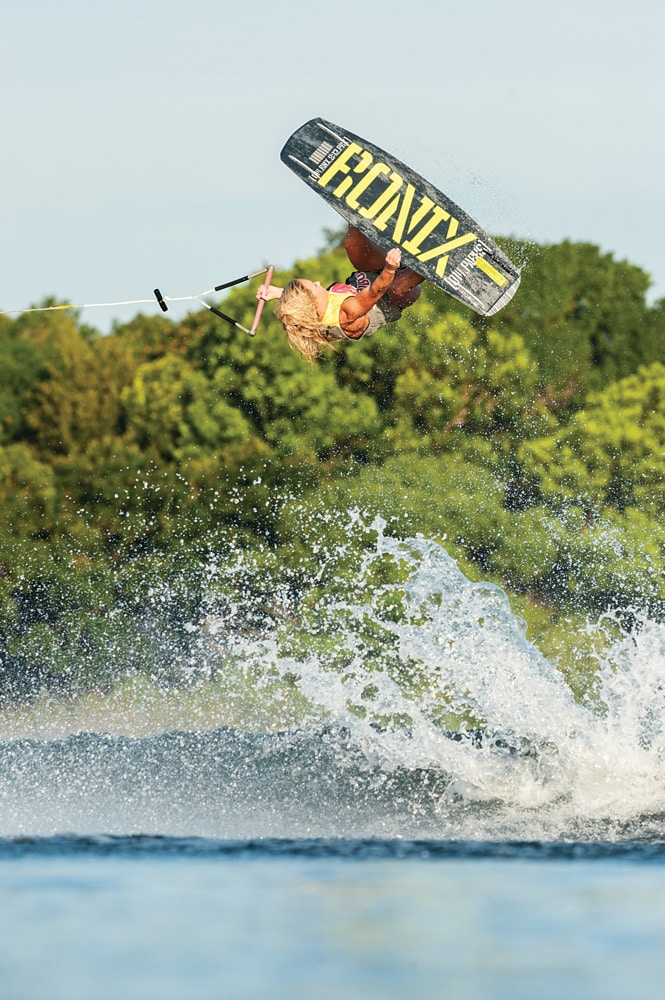
That magical word is derived from the Latin word constare, which means “to stand firm.” Consistency is the ongoing ability to translate your intention into practice; it’s a concept that combines discipline and faith, which are the root of all achievements. The miracle of consistency came to me painfully and slowly. But when it finally did, it stuck.
A funny mind trick is to pretend practice sessions are contests and contests are practice sessions. Between the Pro Tour, Masters, U.S. Open, X Games, etc., I was always on the road. One thing that really helped me was to imagine that I was at a contest every single time I rode. That meant no warm-up tricks. I would do my passes right off the bat. If I fell on any trick, I knew that was the one I needed to work on. On the other hand, whenever I was at a contest, I would imagine that I was at home practicing, telling myself to just do what I do every day — and voilà! I started to ride better at contests than I did in practice. Sometimes I would even land a new trick and my roommates would ask me, “How’d you pull that off?”
Before a big event, I didn’t let my mind wander to the what-ifs. Any thoughts that gave me anxiety, doubt or expectation would not help me perform better. If anything, thinking was detrimental, so I finally learned to put my mind aside.
OK. Are you ready? I’m going to tell you what it took for me to find the golden key of consistency and how I held on to it for dear life.
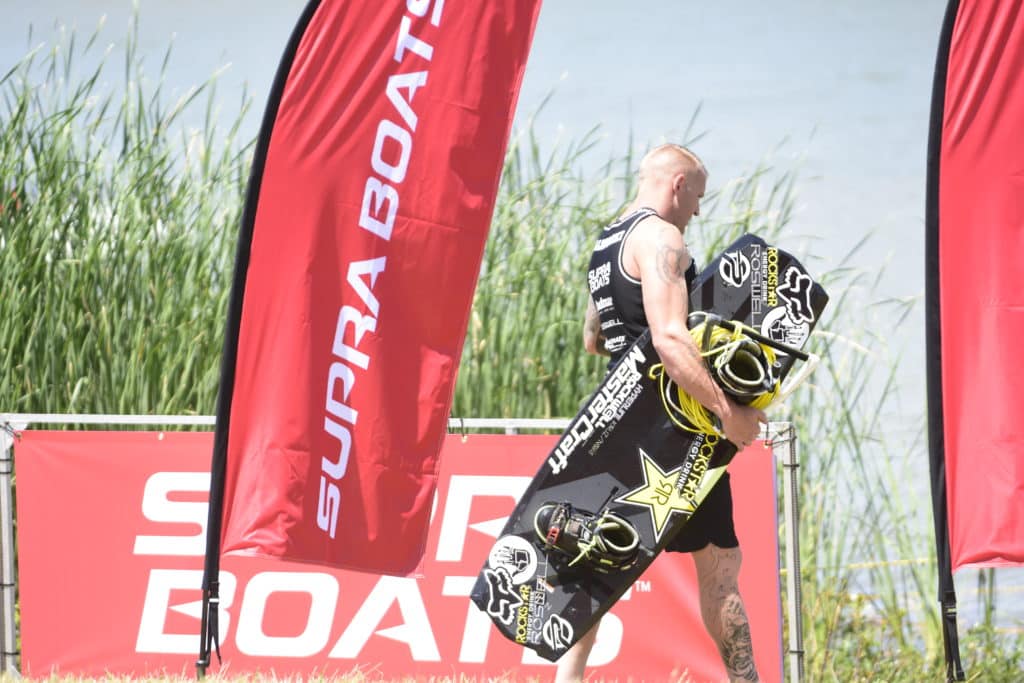
1) VISUALIZE SUCCESS
The first thing I did, all day long and all night long, was to visualize myself landing everything perfectly. I took it further than just visualizing. I practiced something called kinesthesizing. This means that as I closed my eyes and imagined myself doing my tricks one by one, I would actually feel myself doing them in slow motion and flawlessly landing them. If you ever saw me at a contest, you might have noticed that I was walking around with my hands clenched, as if I was holding on to the handle. Ridiculous, I know.
2) NOBODY CARES
About 20 minutes before my turn, I would try to find a place away from the crowd, a place where I could be completely alone. I would stretch and warm up my muscles, all the time convincing myself of one thing: Nobody cares about my performance as much as I do. Really. Did I remember which guy placed third at the last tour stop? Nope. I was there, I was a wakeboarder, and the guy was probably my friend, but I did not remember. So would the intimidating crowd of strangers care about my performance? Probably not. People usually remember only the winner — which brings me to my next piece of advice.
3) DETACH FROM THE OUTCOME
Don’t try to win. Really. I tell my little brother this whenever he’s leading a golf match and then comes home bummed out because he choked on the 18th hole. “Don’t try to win,” I tell him. “Only do your best. If you focus on doing your best every day, one day nobody will be better than you.”
It doesn’t matter whether you stick everything or you find yourself in the water. What matters is that if you did your best, it was a worthy battle, and you can walk out of the water with your head up high, knowing that you tried as hard as you could. Perseverance, endurance and faith brought me to that next level.
I realize a lot of you may never ride in a contest, and some of you are not trying to reach top pro status. No matter what level you’re striving for, this final piece of advice is important for everyone to remember.
4) HAVE FUN
Remember how fortunate you are to be healthy and riding. Enjoy the whole process. At the end of the day, we are so lucky to be flying around above the water. And the summer goes by fast if you don’t take a minute every day to appreciate the awesome lifestyle of wakeboarding.
